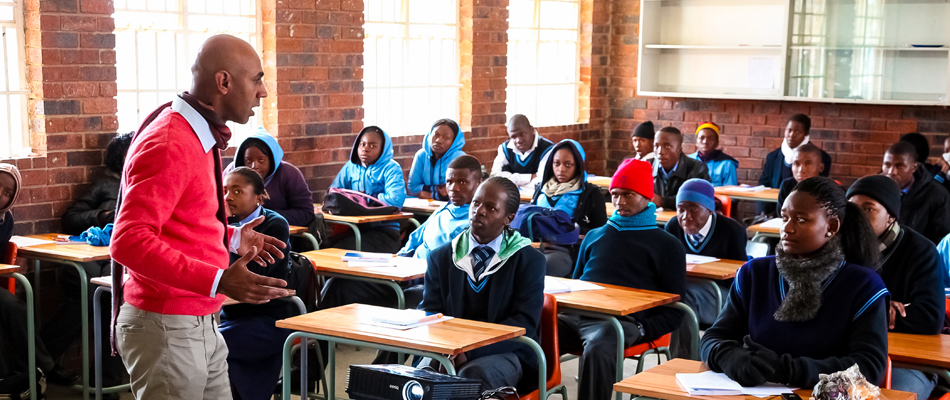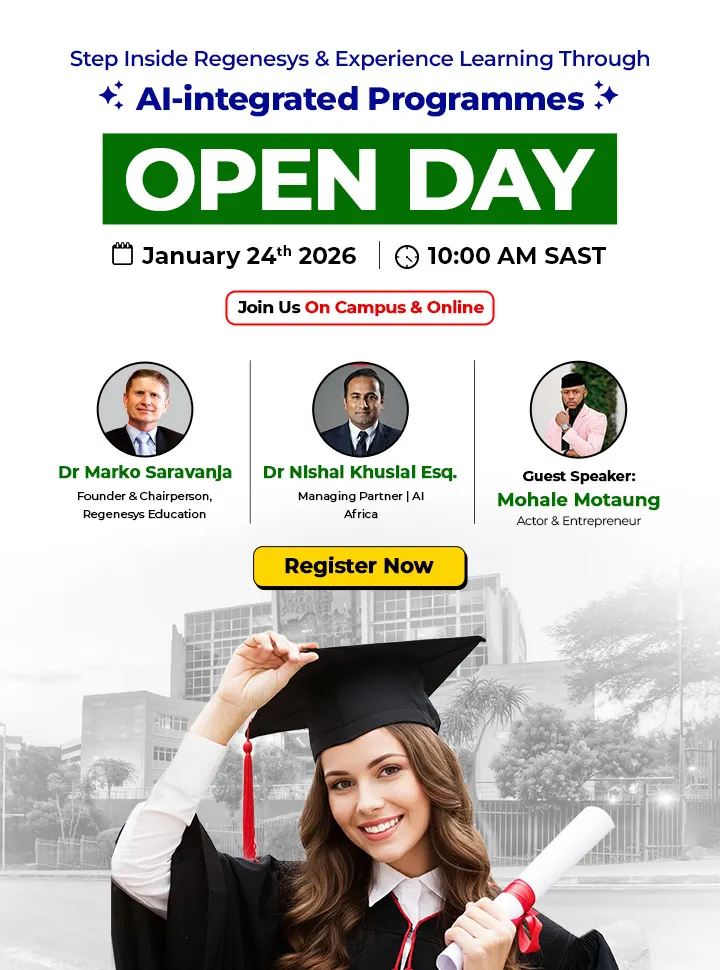Teaching is one of the most impactful careers in South Africa, shaping the knowledge, skills, and values of future generations. The Bachelor of Education (BEd) equips graduates with the expertise to meet the country’s diverse educational needs, from primary schools to senior phase and further education levels. However, like any profession, BEd graduates face both challenges and opportunities in their careers.
This article examines the current teaching landscape in South Africa, the obstacles graduates encounter, and the potential pathways for professional growth and advancement.
Table of Contents
Teaching Landscape in South Africa
Teaching in South Africa is both a vital and demanding profession. While there is a clear need for qualified educators, graduates face challenges shaped by socio-economic factors, infrastructure gaps, and policy constraints. Understanding this landscape helps BEd graduates navigate career opportunities and prepare for the realities of the classroom.
Listed below are some aspects of the current teaching landscape:
- Overview of the education sector: South Africa’s education system spans primary schools to Further Education and Training (FET) institutions. Learning environments vary widely, with significant regional differences in resources, school facilities, and student populations.
- Teacher demand versus supply: Some provinces face critical teacher shortages, creating opportunities for employment, while others experience an oversupply of qualified teachers, leading to stiff competition for available posts.
- Impact of socio-economic factors: The student backgrounds, including access to educational resources and family support, directly influence teaching effectiveness and learning outcomes, requiring educators to adapt their approaches accordingly.
Read more on What Do Employers Look for in BEd Graduates in South Africa?

Challenges for Bachelor of Education Graduates
Despite the essential role of teachers, BEd graduates face several professional challenges. These include limited job availability, workload pressures, and socio-economic factors that influence school environments. Understanding these obstacles allows graduates to proactively prepare for a successful career.
Listed below are some challenges that Bachelor of Education graduates can face:
- Job Market Saturation and Competition – Graduates often compete for limited teaching positions, particularly in urban areas where supply exceeds demand. Rural postings may offer more opportunities but come with unique challenges such as relocation and limited resources.
- Low Salaries and Financial Constraints – Entry-level teachers typically earn modest salaries compared to other professions. Financial pressures can affect job satisfaction and long-term career planning, highlighting the need for strategic career development.
- Workload and Classroom Management – Managing large classes and diverse learners, including those with special needs, is a significant challenge. Limited resources and infrastructural constraints can further increase workload pressures.
- Professional Development and Career Progression – Opportunities for growth may be limited in certain regions. Pursuing additional qualifications or specialised training is often necessary to advance into leadership or specialised teaching roles.
- Socio-economic and Policy Challenges – Inadequate infrastructure, policy changes, and funding limitations impact the quality of education and the working conditions for teachers across South Africa.
Read more on Education Entrepreneurship: Can You Start Your Own Learning Centre After a BEd? here
Opportunities for Bachelor of Education Graduates
Despite challenges, a Bachelor of Education in Senior Phase and Further Education and Training Teaching qualification opens the door to a range of career paths. Graduates can explore roles in teaching, leadership, specialised areas, and alternative educational fields, while further studies and technology offer additional avenues for growth.
The following are the key opportunities BEd graduates can explore:
- Teaching Positions Across Various Levels – Opportunities exist in primary, senior phase, and FET schools, allowing graduates to select levels aligned with their interests and expertise.
- Specialisation Areas – Graduates can specialise in areas such as special needs education, STEM teaching, ICT in education, early childhood education, and curriculum development.
- Leadership and Administrative Roles – With experience, BEd graduates can pursue roles in school management, departmental leadership, and education consultancy, impacting broader educational strategies.
- Alternative Careers in Education – Private tutoring, online education platforms, curriculum design, and working with educational NGOs provide flexible and rewarding career paths beyond traditional teaching.
- Further Studies and Research – Postgraduate degrees and research roles enable graduates to contribute to educational policy, curriculum innovation, and evidence-based teaching practices.
- Impact of Technology – Digital tools and e-learning platforms have transformed education, creating opportunities for online teaching, blended learning, and the integration of ICT into traditional classrooms.
Strategies for Overcoming Challenges
BEd graduates can adopt proactive strategies to navigate the profession successfully. Building skills, gaining practical experience, and embracing digital teaching methods can help overcome professional hurdles.
Listed below are some strategies that graduates can implement to overcome challenges:
- Professional Networks: Join associations and local networks for mentorship, job leads, and peer support.
- Specialised Courses/Postgraduate Studies: Enhance employability and access leadership or niche teaching roles.
- Practical Experience: Volunteer, intern, or tutor to strengthen classroom management and teaching skills.
- Digital Literacy & E-Learning: Use technology and online platforms to engage students and modernise teaching.
Read more on Inclusive Classrooms in South Africa: How the BEd Prepares Teachers for Special Needs Education? here
Explore Our Other Programmes
Conclusion
Teaching is one of the most rewarding and influential careers in South Africa, shaping the knowledge, skills, and values of future generations. While BEd graduates face challenges such as workload pressures and socio-economic constraints, there are numerous opportunities across teaching, leadership, specialisation, and alternative educational careers.
By adopting proactive strategies, such as joining professional networks, pursuing specialised courses, gaining practical experience, and leveraging digital tools, graduates can navigate the profession successfully a nd advance their careers.
Visit the Regenesys Education website to learn how our accredited Bachelor of Education programme can provide the expertise and practical experience to thrive as a teacher, pursue leadership roles, and shape the future of education in South Africa.
Challenges & Opportunities Now for BEd Graduates – FAQ
What are the main challenges BEd graduates face when entering the teaching profession?
Graduates often encounter job competition, rural-urban disparities, large class sizes, limited resources, and low starting salaries.
What career opportunities exist beyond classroom teaching for BEd graduates?
Leadership roles, curriculum design, educational consultancy, private tutoring, online teaching, and work with NGOs.
Can BEd graduates specialise in certain subjects or education levels?
Yes, opportunities include special needs education, ICT in education, early childhood development, and senior phase or FET teaching.
How can BEd students overcome professional challenges in South Africa?
Strategies include networking, gaining practical experience, pursuing specialised training, and using digital teaching tools effectively.
How can BEd graduates make a meaningful impact in South Africa’s education sector?
Graduates can make an impact by engaging in continuous professional development, mentoring students, embracing innovative teaching methods, and exploring leadership or specialised roles.







